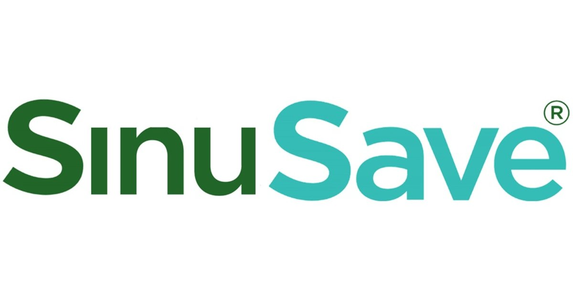Outline
- Introduction
- Understanding CBD
- The Legal Status of CBD
- Federal Laws on CBD
- State Laws on CBD
- FDA Regulations on CBD
- Benefits of Legal CBD
- Potential Risks and Side Effects
- Common Misconceptions about CBD's Legality
- Frequently Asked Questions
- Is CBD legal in all 50 states?
- Can CBD be used for medical purposes?
- Is CBD safe for children?
- Can CBD make you high?
- How can I ensure the CBD I purchase is legal?
- Conclusion
Is CBD Legal? Ask an Expert
CBD, short for cannabidiol, has gained significant popularity in recent years for its potential health benefits. However, the legal status of CBD can be confusing, with varying regulations across different jurisdictions. In this article, we will explore the legal aspects of CBD and provide insights from experts in the field.
Understanding CBD
Before delving into the legalities, let's understand what CBD is. CBD is a naturally occurring compound found in the cannabis plant. Unlike tetrahydrocannabinol (THC), another compound found in cannabis, CBD does not produce psychoactive effects or make you high. Instead, it is known for its potential therapeutic properties, such as pain relief, anxiety reduction, and anti-inflammatory effects.
The Legal Status of CBD
The legality of CBD primarily depends on two factors: federal laws and state laws. While CBD derived from hemp with less than 0.3% THC is legal under federal law, individual states have the authority to regulate and enforce their own laws regarding CBD.
Federal Laws on CBD
In 2018, the U.S. Congress passed the Farm Bill, which legalized the cultivation, production, and sale of hemp and hemp-derived products at the federal level. According to this legislation, hemp is defined as cannabis plants containing less than 0.3% THC. As long as CBD is derived from hemp and meets this THC requirement, it is considered legal under federal law.
State Laws on CBD
Although CBD derived from hemp is federally legal, individual states have the power to implement their own regulations. Some states have fully embraced CBD and allow its sale and use without restrictions. However, other states have imposed stricter regulations or even banned CBD altogether. It is crucial to be aware of the specific laws in your state to ensure compliance.
FDA Regulations on CBD
The U.S. Food and Drug Administration (FDA) plays a significant role in regulating CBD products. Currently, the FDA has approved only one CBD-based medication, Epidiolex, for the treatment of two rare forms of epilepsy. However, CBD products marketed as dietary supplements or added to food and beverages are not yet fully regulated by the FDA, leading to a gray area in the industry.
Benefits of Legal CBD
Legal CBD offers various potential benefits to consumers. Many people use CBD for pain management, as it may help alleviate chronic pain and inflammation. Additionally, CBD has shown promise in reducing anxiety and stress, improving sleep quality, and supporting overall well-being. With proper regulation, legal CBD products provide a safer option for consumers.
Potential Risks and Side Effects
While CBD is generally considered safe, it may cause side effects in some individuals. These side effects can include dry mouth, diarrhea, drowsiness, and changes in appetite. It is essential to consult with a healthcare professional before incorporating CBD into your routine, especially if you are taking other medications or have underlying health conditions.
Common Misconceptions about CBD's Legality
There are several misconceptions surrounding the legality of CBD. One common misconception is that CBD is legal in all 50 states. As mentioned earlier, state laws can vary significantly, and it is crucial to understand the regulations specific to your location. Another misconception is that CBD can make you high. CBD does not possess psychoactive properties and does not produce the euphoric effects associated with THC.
Frequently Asked Questions
-
Is CBD legal in all 50 states?
- While CBD derived from hemp is federally legal, state laws may vary. It is essential to research and understand the laws specific to your state.
-
Can CBD be used for medical purposes?
- CBD has shown potential for medical use, particularly in the treatment of epilepsy. However, further research is needed to fully understand its effectiveness for other medical conditions.
-
Is CBD safe for children?
- The safety of CBD for children is still being studied. It is crucial to consult with a pediatrician or healthcare professional before giving CBD to a child.
-
Can CBD make you high?
- No, CBD does not produce psychoactive effects or make you high. THC is the compound responsible for the intoxicating effects of cannabis.
-
How can I ensure the CBD I purchase is legal?
- To ensure the legality of CBD products, purchase from reputable sources that provide third-party lab testing and detailed product information.
Conclusion
In conclusion, the legal status of CBD is complex and can vary depending on federal and state laws. While CBD derived from hemp with less than 0.3% THC is federally legal, state regulations play a significant role in determining its legality. It is crucial for consumers to stay informed about the specific laws in their jurisdiction and purchase CBD products from reputable sources. By understanding the legal landscape of CBD, individuals can make informed decisions about its use and reap its potential benefits.

